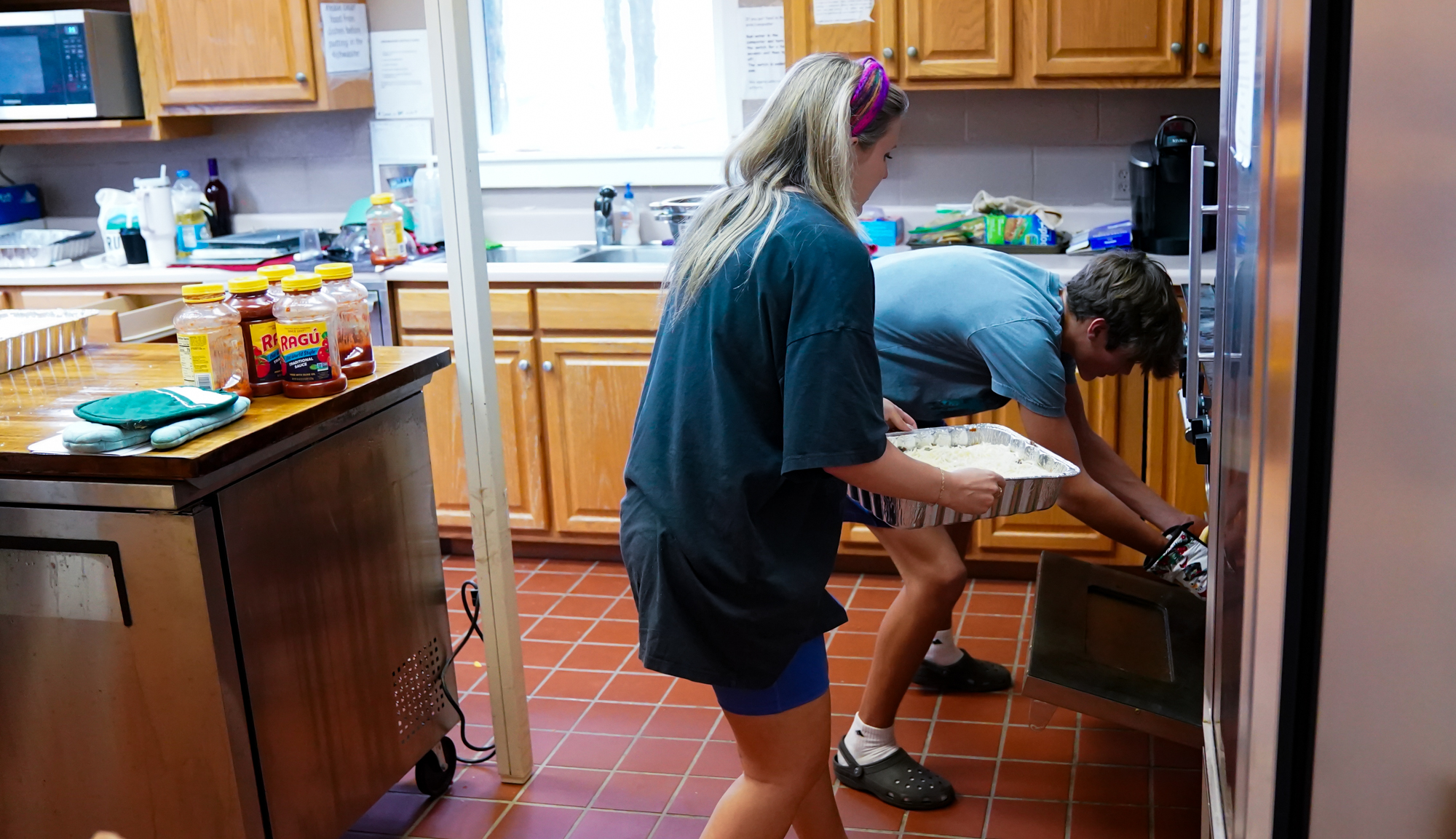By David Rogers. BLOWING ROCK, N.C. — For Maggie Cheaves, it was like watching a slow-motion movie. Looking out the kitchen window, she saw a tree slowly begin to fall toward her family’s home. She was powerless to stop the inevitable.
Her brother, Sam Cheaves, was unaware of what was happening outside — until the tree broke through the roof, ceiling and wall of his bedroom, narrowly missing him.
“It was terrifying,” the Blowing Rock School 8th grader recalled of the tree his sister, a Watauga High School senior, saw falling just before it crashed into his bedroom.

But even with their own family’s power, internet and TV still not restored, much less having the damage to their home repaired — joining tens of thousands among the region’s victims of Hurricane Helene’s onslaught — these two young people are at Rumple Memorial Presbyterian Church in Blowing Rock this week, working alongside other area youth for the Blowing Rock Cares Food Pantry and packing provisions in boxes for first responders.
“Today, we packed 60 boxes of food for U.S. Forest Service employees out working to clean things up and rescue people,” said Janie Beach-Verhay. “We don’t have school this week, so I can’t think of anything better than to help people in our community and in our region who have lost so much. At the same time, we need to support the people out there providing direct help to the folks in need.”

Beach-Verhay, a junior at Watauga High School and one of the Pioneers’ top cross country athletes, said with school not in session the team members are mostly training on their own or in small groups at the high school track. It also gives her time to focus on community service needs, realizing that as disruptive the impact Hurricane Helene was on her life, she and her family are among the “lucky ones” compared to others in the area with homes washed away, severely damaged by mudslides, or without power for several days.
In their young lifetimes, Beach-Verhay and the Cheaves siblings have already endured the worldwide ravages of a pandemic and now a disruptive natural disaster adding to what school administrators are calling, “an education deficit.”
“We are resilient,” said Beach-Verhay.
“We’ll get through this,” said the Cheaves siblings, almost in unison.
Fortunately, stories of compassion in the High Country are abundant in a time of unprecedented, widespread destruction from a natural disaster: Neighbors helping neighbors get out of subdivisions, taking chain saws to clear fallen trees across roadways; companies and individuals showing up on the doorsteps of complete strangers with portable generators; driving a hot meal and bringing along smiles to an elderly couple who are challenged to fend for themselves without electricity and with a car rendered inoperable by a fallen tree; wielding shovels against a torrent of mud and debris.
People helping people without first asking about political or religious views.





